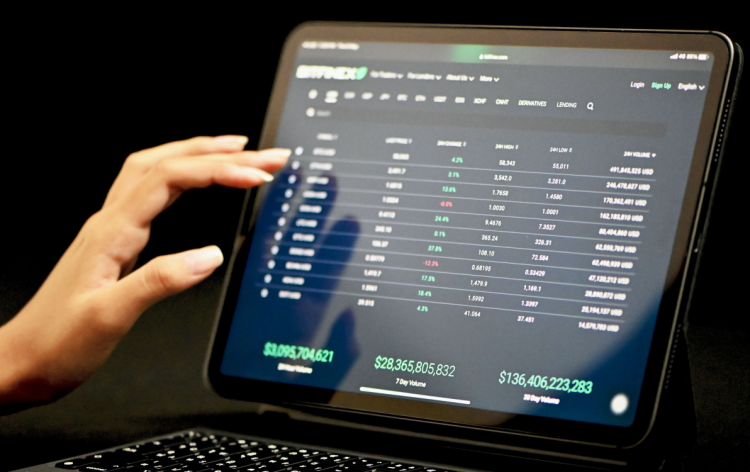How Fintech Startups are Disrupting Traditional Forex Brokerage Models

As the global economy becomes increasingly interconnected, forex trading has become a popular way for individuals and businesses to participate in the global marketplace. With the advent of technology and the growth of fintech, the forex industry has seen a surge in innovation and disruption.
In this article, we will explore the growth of forex startups and brokers and how they have been impacted by the rise of fintech. We will examine how fintech has disrupted traditional forex brokerage models, providing new opportunities for startups to enter the market and compete with established players. We will also look at the challenges and opportunities presented by fintech for forex startups and brokers, including the need to adapt to new technologies and changing customer preferences.
Overall, the forex industry is rapidly evolving, and the rise of fintech is playing a key role in driving this transformation. By exploring the ways in which fintech is impacting forex startups and brokers, we can gain a better understanding of the opportunities and challenges facing this dynamic and rapidly-changing industry.
What Does Traditional FX Brokerage Models Mean?
Traditional forex brokerage models typically involve a centralized platform through which traders can execute trades and access market data. These platforms are typically operated by large financial institutions or established brokerage firms and are designed to provide traders with access to the global forex market.
Traditional models of the FX market include the participation of intermediaries. These intermediaries provide a range of services, including market research, analysis, and trading advice. They may also offer a range of trading tools and platforms designed to help traders execute trades more efficiently.
While traditional forex brokerage models have been around for many years, they continue to be widely used by traders today. This is because they offer a number of advantages over other models, including access to a wide range of financial instruments, deep market liquidity, and a high degree of market transparency.
At the same time, there are also several disadvantages to traditional forex brokerage models. One of the key drawbacks is the high cost of trading, which can be prohibitively expensive for small traders or those operating on a tight budget. Another potential disadvantage is the lack of customization and flexibility offered by these platforms, which can limit traders’ ability to tailor their trading strategies to their specific needs and preferences.
Despite these limitations, many traders still prefer traditional forex brokerage models due to their reliability, transparency, and long-standing reputation in the market. These models have proven themselves to be effective at facilitating global forex trading and have become a cornerstone of the global financial system.
However, with the rise of fintech, we are now seeing a growing number of innovative startups and platforms that are challenging the traditional forex brokerage model. These new players are leveraging new technologies such as blockchain, artificial intelligence, and cloud computing to provide traders with more advanced trading tools and platforms, lower fees, and more customizable trading strategies.
In conclusion, while traditional forex brokerage models continue to be widely used by traders, they are not without their limitations. As fintech continues to disrupt the financial industry, we can expect to see new models and platforms emerge that offer greater customization, flexibility, and affordability, potentially revolutionizing the way that forex trading is conducted around the world.
How Fintech Impacts FX Traditional Models
Fintech startups are disrupting traditional forex brokerage models by offering innovative new platforms and tools that are designed to provide traders with more efficient, cost-effective, and customizable trading solutions. One of the key ways in which fintech startups are disrupting traditional forex brokerage models is by leveraging new technologies such as blockchain, artificial intelligence, and cloud computing to provide traders with more advanced trading tools and platforms.
For example, platforms like eToro and Robinhood offer commission-free trading and the ability to trade a wide range of financial instruments, including forex, cryptocurrencies, and stocks. These platforms also include different helpful tools including copy trading and great tools for market analysis.
Algorithm trading is also another main feature of today’s FX platforms. These platforms are designed to provide traders with more accurate and efficient trade execution, as well as the ability to backtest trading strategies and analyze market data in real time.
While the rise of fintech startups is disrupting traditional forex brokerage models, the extent to which this disruption is profitable or non-profitable for traders and the future of the forex market are still up for debate. On the one hand, fintech startups are providing traders with more efficient and cost-effective trading solutions, which can be beneficial for both novice and experienced traders. They are also challenging traditional forex brokers to become more innovative and customer-focused, which can lead to greater competition and more options for traders.
On the other hand, some experts argue that the rise of fintech startups could potentially destabilize the forex market by increasing market volatility and reducing market liquidity. Additionally, some of these startups may lack the regulatory oversight and security measures that traditional forex brokers are required to provide, which could expose traders to increased risk.
Ultimately, the impact of fintech startups on the forex market will depend on a variety of factors, including the regulatory environment, the evolution of technology, and the changing needs and preferences of traders. While the disruption caused by fintech startups may be disruptive in the short term, it is ultimately up to traders to decide whether or not these new platforms and tools are profitable or non-profitable for their trading strategies and long-term goals.


























Comments (0 comment(s))